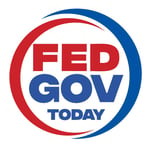Reimagining Federal Audits: Turning Data into Real Decisions
In a thought-provoking conversation on Fed Gov Today, Loren DeJonge Schulman, founder and principal at Telos Lab, and Robert Shea, CEO of GovNavigators, discuss the future of federal financial audits and how the government can make them more effective, insightful, and actionable. Drawing from their experience as former associate directors at the Office of Management and Budget (OMB), both offer a grounded perspective on how audits are currently conducted and how they might evolve.
At the center of the discussion is a recent memo from OMB Director Russ Vought, titled “Federal Audits Don’t Work.”While blunt in tone, the memo surfaces long-standing concerns across government: audits often feel like rote compliance exercises, lacking real utility for decision-making or agency performance improvement.
Robert Shea reflects on the historical context, noting that since the 1990 Chief Financial Officers Act, agencies have been required to undergo annual financial statement audits. Yet decades later, some still don’t achieve clean opinions. “Even those that do,” Shea says, “may not see pure value in the exercise.” He questions whether the massive investments made—especially at the Department of Defense—are producing meaningful returns.
Loren DeJonge Schulman agrees, adding that the issue isn’t always about the availability of data, but rather how that data is used. “The information may be there, buried within the mountains it is provided,” she says, “but it’s more about whether it’s integrated and actionable.” She emphasizes the need for audits to surface key risks, help uncover root causes, and inform strategies to reduce waste and fraud—not simply check boxes.
Both agree that modernizing the audit process requires more than a memo. What’s needed, they say, is a well-planned change management strategy that brings together the many stakeholders in the audit ecosystem. Loren stresses the importance of listening to the community—auditors, customers, and end users—to understand what works, what doesn’t, and how audits can become a more useful tool for decision-making.
Robert builds on that, warning that if new approaches aren’t aligned with standards from entities like GAO and the Federal Accounting Standards Advisory Board, they could lead to confusion. “You’ve got to bring in GAO, OMB, Treasury, Congress, the CFO Council, Inspectors General—all of them,” he says. It’s a large, interconnected community, and collaboration will be key to reform that’s both meaningful and sustainable.
Another key theme of the discussion is integration. Audits need to tie into performance management, strategic planning, and budgeting. Loren explains that financial oversight shouldn’t stand alone—it should help drive better decisions across the enterprise. She also underscores the importance of communicating results clearly, not just within government but to the American public, who care deeply about how tax dollars are spent.
Robert concludes by stressing the value of having a holistic view of program performance, across agencies and budgets. “Getting an enterprise view of what’s most cost-effective is a great result,” he says. Together, their conversation offers a clear, practical vision for transforming audits into tools that support smarter government.

